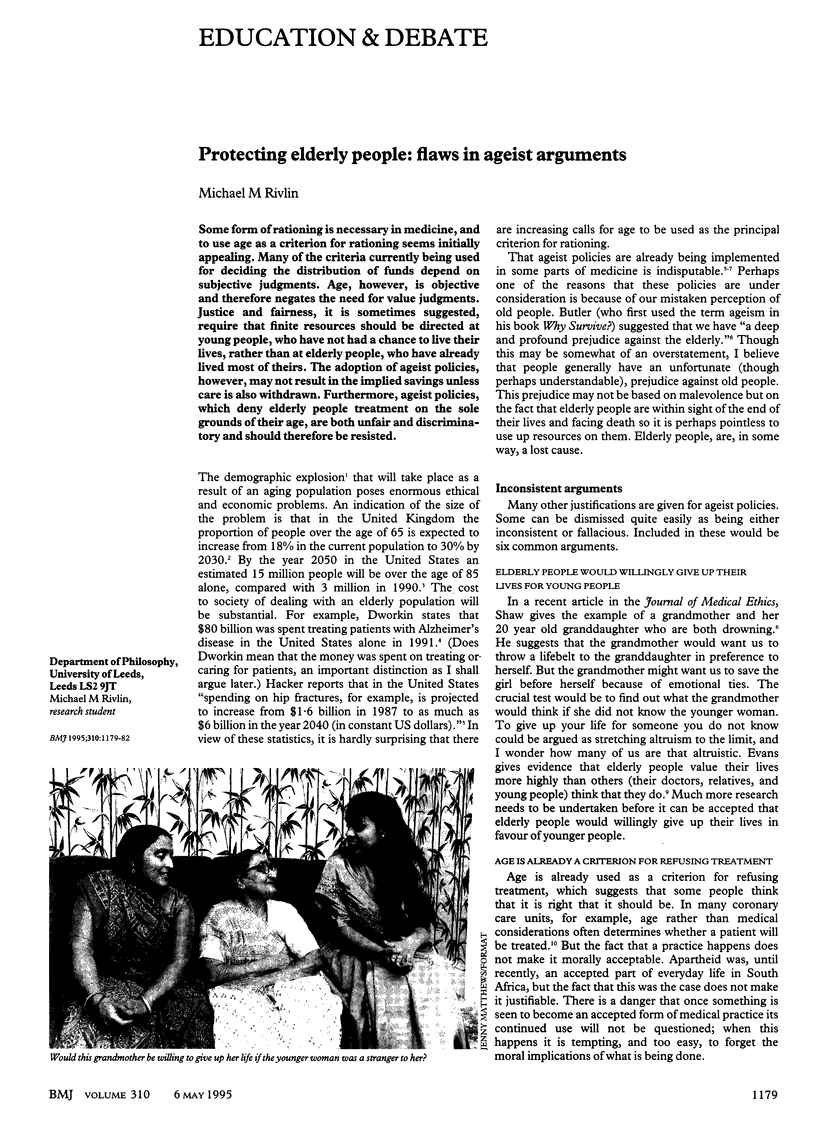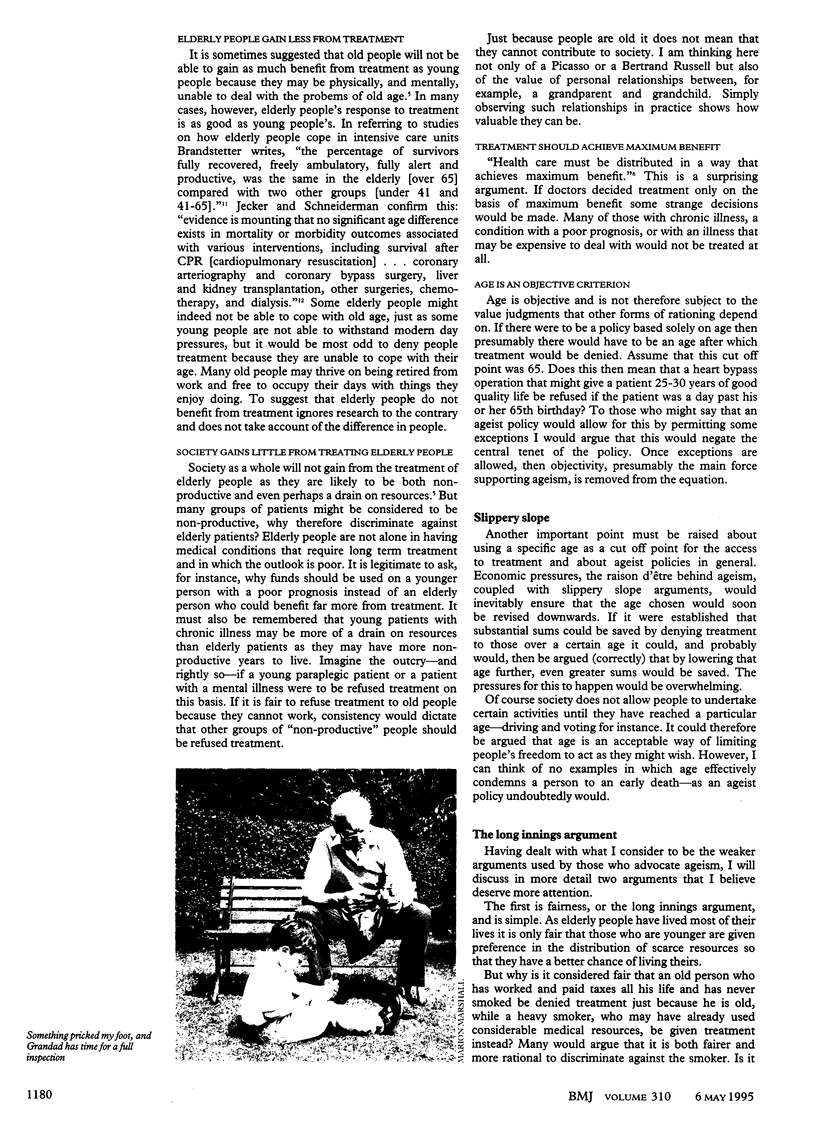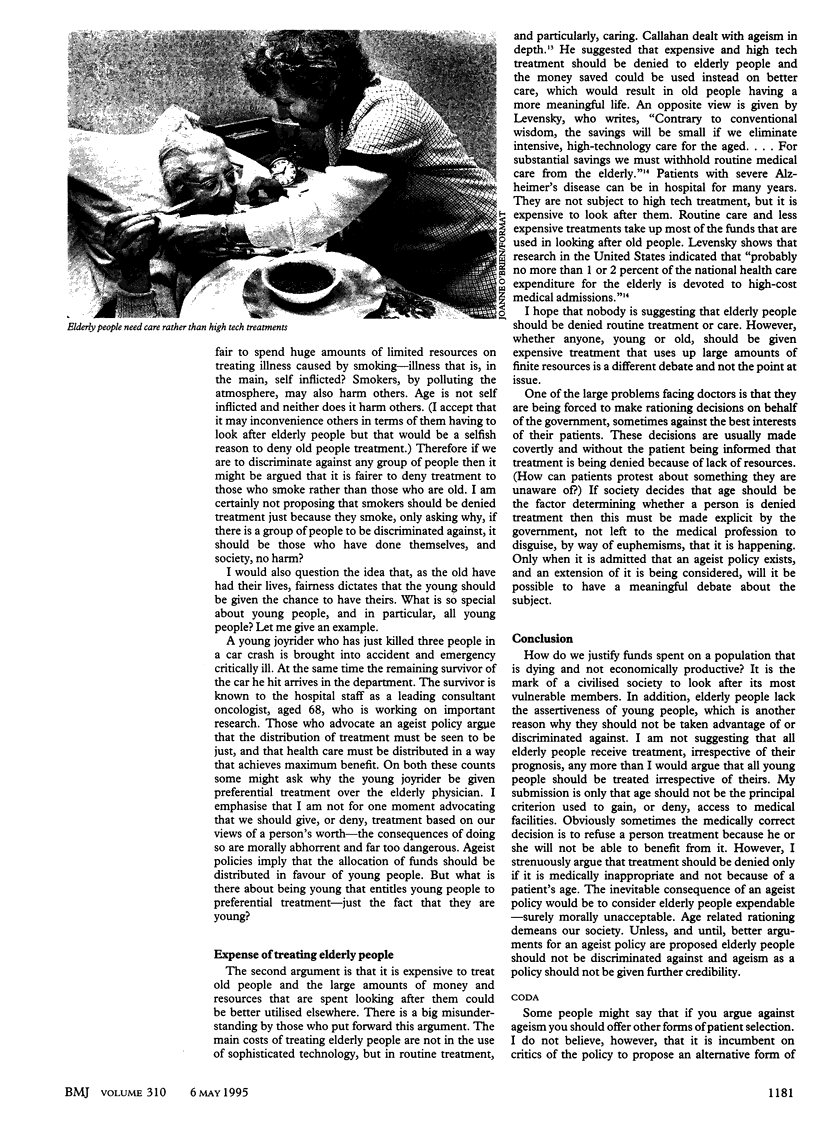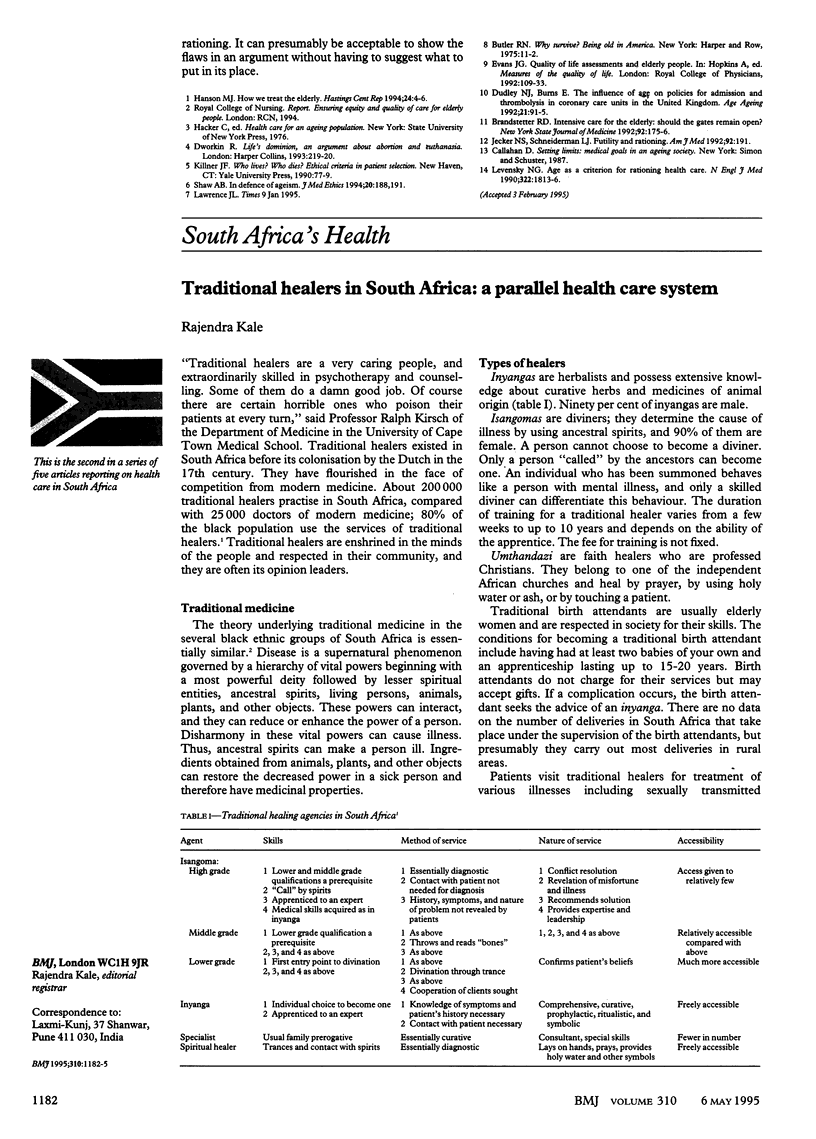Abstract
Some form of rationing is necessary in medicine, and to use age as a criterion for rationing seems initially appealing. Many of the criteria currently being used for deciding the distribution of funds depend on subjective judgments. Age, however, is objective and therefore negates the need for value judgments. Justice and fairness, it is sometimes suggested, require that finite resources should be directed at young people, who have not had a chance to live their lives, rather than at elderly people, who have already lived most of theirs. The adoption of ageist policies, however, may not result in the implied savings unless care is also withdrawn. Furthermore, ageist policies, which deny elderly people treatment on the sole grounds of their age, are both unfair and discriminatory and should therefore be resisted.
Full text
PDF



Images in this article
Selected References
These references are in PubMed. This may not be the complete list of references from this article.
- Hanson M. J. How we treat the elderly. Hastings Cent Rep. 1994 Sep-Oct;24(5):4–6. [PubMed] [Google Scholar]
- Shaw A. B. In defence of ageism. J Med Ethics. 1994 Sep;20(3):188-91, 194. doi: 10.1136/jme.20.3.188. [DOI] [PMC free article] [PubMed] [Google Scholar]
- Zaman Z., Roche S., Fielden P., Frost P. G., Niriella D. C., Cayley A. C. Plasma concentrations of vitamins A and E and carotenoids in Alzheimer's disease. Age Ageing. 1992 Mar;21(2):91–94. doi: 10.1093/ageing/21.2.91. [DOI] [PubMed] [Google Scholar]





